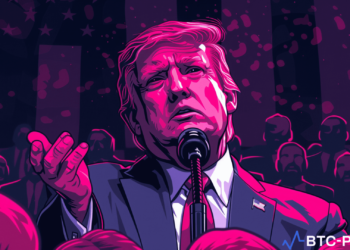The US Securities and Exchange Commission (SEC) approved the sale of spot Ether Exchange-Traded Funds (ETFs) in the United States on May 23, 2024. This decision combines proposals from Nasdaq, NYSE, and CBOE exchanges, allowing the trading of Ethereum Exchange-Traded Products (ETPs) and ETFs. This marks the SEC’s second major approval of crypto ETPs this year, following the approval of Bitcoin ETFs in January 2024.
However, trading will not commence immediately, as issuers need individual ETF registration statements approved by the them, detailing investor disclosures. The timeline for this approval process remains uncertain.
SEC’s Points of Concern
In its accelerated approval process, the SEC highlighted several key concerns:
Fraud and Manipulation Prevention: The Importance of the CME
Reflecting on Section 6(b)(5) of the Exchange Act, the SEC emphasized the necessity of comprehensive surveillance-sharing agreements with the Chicago Mercantile Exchange (CME) to detect and deter fraud and manipulation. Despite the CME not currently surveilling spot ether markets, the high correlation between futures and spot markets means price manipulations in the spot market could affect the futures market.
To confirm this correlation, exchanges submitted correlation analyses, and the them conducted its own review, examining price data for CME ether futures and spot ETH/USD trading pairs on major platforms like Coinbase and Kraken. The results confirmed a high correlation, supporting the SEC’s confidence in CME’s surveillance capabilities.
Investor Protection and Market Integrity
Further in its decision, the them analyzed Section 11A(a)(1)(C)(iii) of the Exchange Act to ensure the ether-based ETPs provide sufficient investor protection and market integrity. Key requirements include:
- Availability of Pricing Information: Ensuring quotation and last-sale information for each ETP is accessible via the securities information processor, with intra-day indicative values (IIV) and net asset values updated every 15 seconds during regular trading hours.
- Transparency of Portfolio Holdings: ETPs must disclose their portfolio holdings regularly, including the amount of ether and any cash equivalents held, typically updated daily on the ETP’s website and other financial platforms.
- Surveillance Procedures and Agreements: Exchanges must have data exchange agreements to share information with other regulated markets, enhancing the ability to detect and deter fraud and manipulation. They must also specify conditions for trading halts and suspensions.
Other Concerns: Volatility and Risk
In its final analysis, the SEC addressed additional concerns raised by commenters, including investor protection, environmental considerations, and volatility and risk concerns.
One commenter highlighted ether’s price volatility, arguing that spot ether ETPs could threaten retail investors and the broader financial system by integrating the crypto industry with traditional finance. While the them acknowledged these concerns, it emphasized the broader context of market volatility and potential investor attraction, adhering to the principle of caveat emptor.
However, the them and other supervisory authorities must focus on the broader impact of merging crypto with traditional finance. The gradual blending and introduction of multiple derivative assets could significantly affect the financial system, raising concerns that remain largely unexamined and unaddressed. Ignoring these potential consequences could lead to financial crises similar to 2007-2008 on a larger scale.
With these approvals, the them has taken another significant step towards integrating cryptocurrencies into the mainstream financial system, while maintaining a vigilant stance on market integrity and investor protection.










